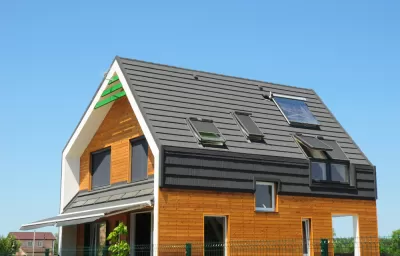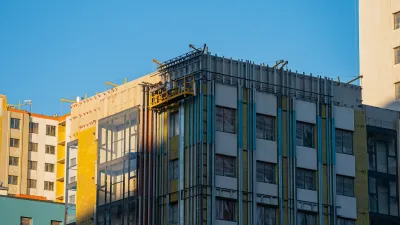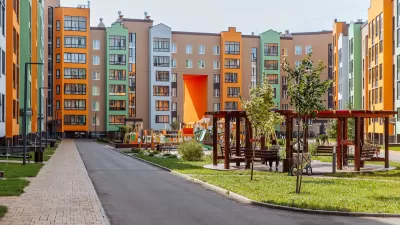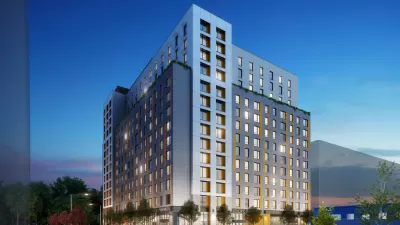Fresh interest in green building among investors, new incentives, and stricter building codes are making it more possible to include green building practices in affordable housing production.

Until recently, housing developers often faced a choice between lower building costs and a lower carbon footprint. “Simply put, the lower the carbon footprint, the higher the cost to build.” But now, writes Allen Feliz, “Thanks to a combination of incentives, the growing popularity of ESG investing and stricter building codes, affordable housing and decarbonization are no longer mutually exclusive.”
As Feliz notes, “Incentives defray costs for both new construction and retrofits. Fannie Mae and Freddie Mac, for example, have robust programs for green financing.” Meanwhile, “Innovations in the works should make decarbonization initiatives and sustainable building less costly. Ravi Malhotra, founder and president of ICAST, offers the example of heat pumps that provide more efficient cooling, space heating and water heating.”
According to the article, ESG (Environmental, Social, and Governance) investing is one boon to green building. “Notably, many of the most prominent investors and lenders in the affordable housing space have strict ESG mandates that influence their funding decisions.” In the near future, “Developers and investors may eventually have no choice but to decarbonize their portfolios and build sustainably, thanks to ever-stricter building codes. California has a Green Building Standards Code. New York City has implemented Local Law 97, which limits operational carbon emissions. Boston has enacted BERDO 2.0, which requires large buildings to reduce their energy and water use.”
Feliz points to a development in Garfield Park, Chicago, built by Preservation of Affordable Housing (POAH) that will met Passive House standards, a set of strict sustainability guidelines, as one example of how sustainable building and affordable housing can coexist.
FULL STORY: Affordable Housing and Decarbonization Are No Longer Mutually Exclusive

Alabama: Trump Terminates Settlements for Black Communities Harmed By Raw Sewage
Trump deemed the landmark civil rights agreement “illegal DEI and environmental justice policy.”

Study: Maui’s Plan to Convert Vacation Rentals to Long-Term Housing Could Cause Nearly $1 Billion Economic Loss
The plan would reduce visitor accommodation by 25% resulting in 1,900 jobs lost.

Planetizen Federal Action Tracker
A weekly monitor of how Trump’s orders and actions are impacting planners and planning in America.

Wind Energy on the Rise Despite Federal Policy Reversal
The Trump administration is revoking federal support for renewable energy, but demand for new projects continues unabated.

Passengers Flock to Caltrain After Electrification
The new electric trains are running faster and more reliably, leading to strong ridership growth on the Bay Area rail system.

Texas Churches Rally Behind ‘Yes in God’s Back Yard’ Legislation
Religious leaders want the state to reduce zoning regulations to streamline leasing church-owned land to housing developers.
Urban Design for Planners 1: Software Tools
This six-course series explores essential urban design concepts using open source software and equips planners with the tools they need to participate fully in the urban design process.
Planning for Universal Design
Learn the tools for implementing Universal Design in planning regulations.
Caltrans
Smith Gee Studio
Institute for Housing and Urban Development Studies (IHS)
City of Grandview
Harvard GSD Executive Education
Toledo-Lucas County Plan Commissions
Salt Lake City
NYU Wagner Graduate School of Public Service





























